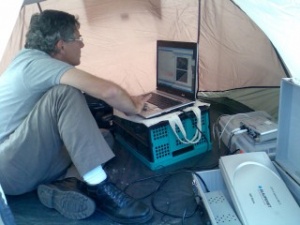Faria, A., Fonseca, P.J., Vieira, M., Alves, L.M.F., Lemos, M.F.L., Novais, S.C., ... & Amorim, M. C. P. (2022) Boat noise impacts early life stages in the Lusitanian toadfish: a field experiment.
Science of the Total Environment,
811, 151367. DOI:10.1016/j.scitotenv.2021.151367 (IF2022 9,8; Q1 Environmental Sciences)
Marine traffic is the most common and chronic source of ocean noise pollution. Despite the evidence of detrimental effects of noise exposure on fish, knowledge about the effects on the critical early life stages - embryos and larvae - is still scarce. Here, we take a natural habitat-based approach to examine potential impacts of boat noise exposure in early life stages in a wild fish population of the Lusitanian toadfish (Halobatrachus didactylus). In-situ experiments were carried out in the Tagus estuary, an estuary with significant commercial and recreational boat traffic. Nests with eggs were exposed to either ambient (control) or boat noise (treatment), for 1 fortnight. Eggs were photographed before being assigned to each treatment, and after exposure, to count number of eggs and/or larvae to assess survival, and sampled to study development and oxidative stress and energy metabolism-related biomarkers. Data concerns 4 sampling periods (fortnights) from 2 years. Results indicate that offspring survival did not differ between treatments, but boat noise induced a detrimental effect on embryos and larvae stress response, and on larvae development. Embryos showed reduced levels of electron transport system (ETS), an energy metabolism-related biomarker, while larvae showed higher overall stress responses, with increased levels of superoxide dismutase (SOD) and DNA damage (oxidative stress related responses), ETS, and reduced growth. With this study, we provided the first evidence of detrimental effects of boat noise exposure on fish development in the field and on stress biomarker responses. If these critical early stages are not able to compensate and/or acclimate to the noise stress later in the ontogeny, then anthropogenic noise has the potential to severely affect this and likely other marine fishes, with further consequences for populations resilience and dynamics.

